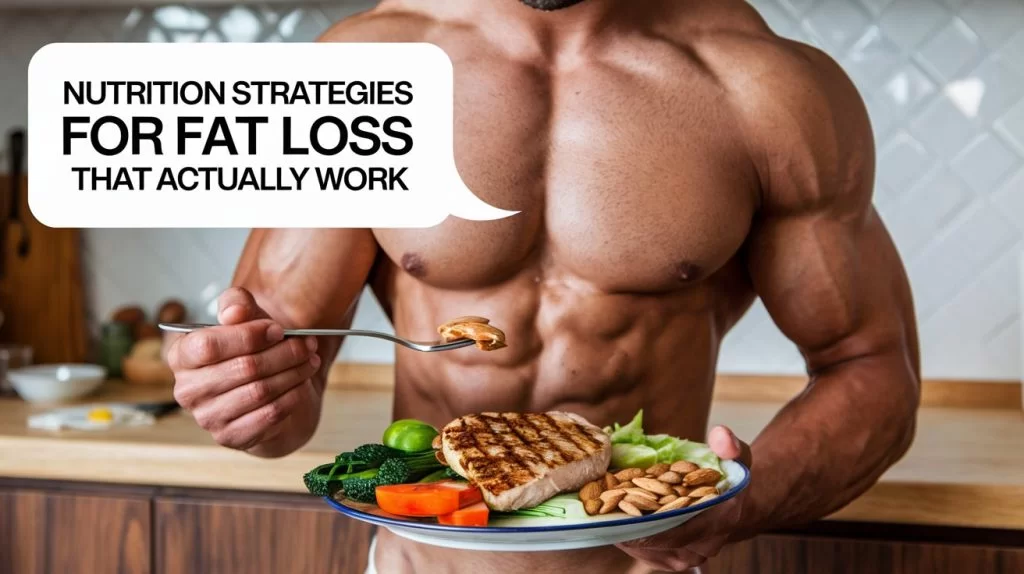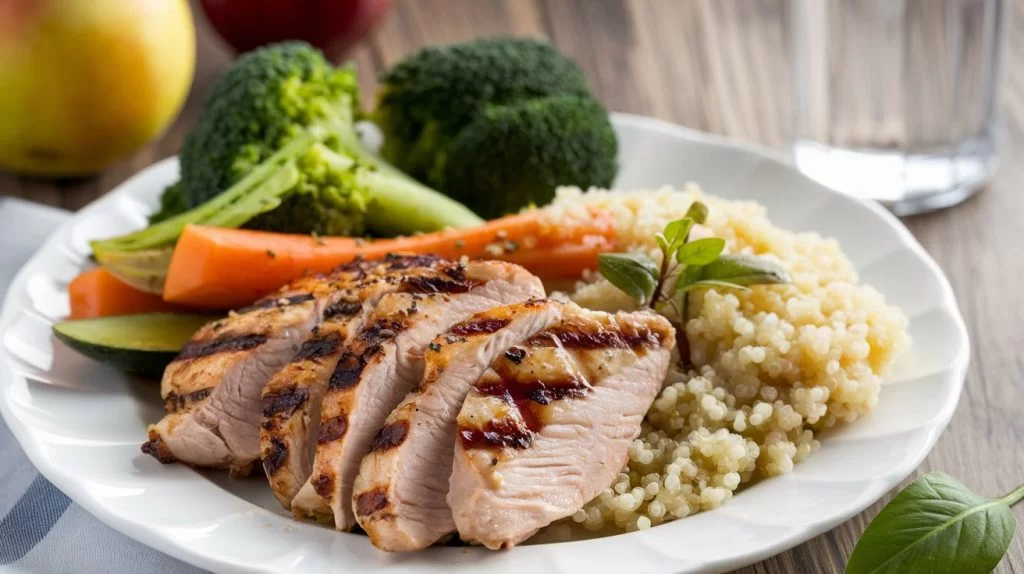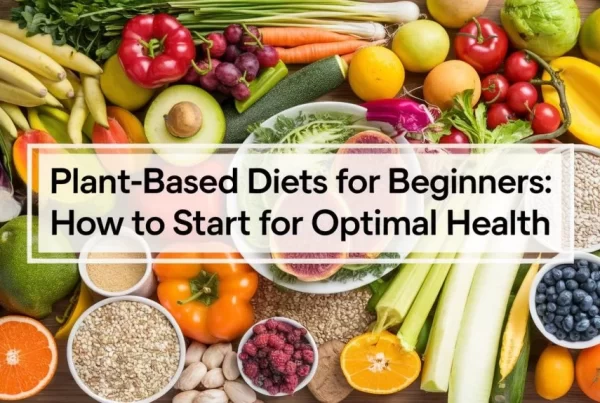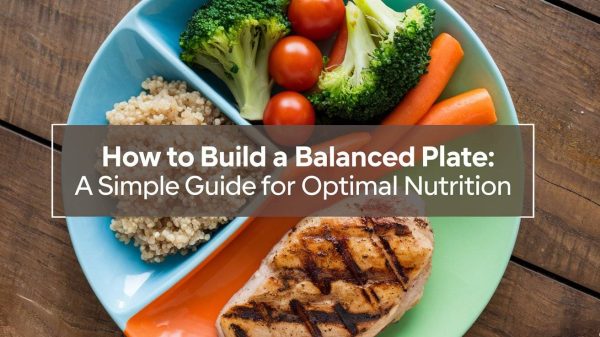Science-Backed Methods for Sustainable Weight Loss
Losing fat effectively isn’t just about cutting calories — it’s about following smart nutrition strategies that preserve muscle, optimize metabolism, and support long-term success. As a nutrition specialist, I’ve gathered the most evidence-based methods for achieving fat loss without extreme restriction or metabolic damage.
🥩 Protein Prioritization for Optimal Body Composition
Protein is the cornerstone of effective fat loss. It has the highest thermic effect of food (TEF) — meaning your body burns more calories digesting protein than carbs or fats. Moreover, it helps regulate appetite by stimulating hormones like GLP-1 and Peptide YY, keeping you fuller for longer.
How to Use Protein Strategically
- Consume 0.8–2.2 g of protein per kg of body weight daily
- Spread intake across 3–4 meals for steady absorption
- Prioritize quality sources such as eggs, lean meats, fish, and dairy
- Include plant proteins like lentils, chickpeas, and tofu for variety
🍠 Strategic Carbohydrate Management
Carbohydrates aren’t the enemy — it’s all about timing and quality. Consuming carbs around workouts helps maximize performance and recovery when insulin sensitivity is highest.
Smart Carb Guidelines
- Moderate carb intake while keeping fiber levels between 25–30g daily
- Choose whole, nutrient-dense sources such as fruits, vegetables, and whole grains
- Try carb cycling (high- and low-carb days) for metabolic flexibility
- Pair carbs with protein and healthy fats to reduce blood sugar spikes
🥑 Healthy Fats for Metabolic Optimization
Fats are vital for hormone balance, brain health, and vitamin absorption. Rather than fearing fats, focus on the right types.
Fat Intake Recommendations
- Aim for 0.5–1 g per kg of body weight
- Prioritize omega-3s (salmon, walnuts, chia seeds) and monounsaturated fats (avocado, olive oil)
- Use saturated fats (like coconut oil or ghee) in moderation
- Avoid processed vegetable oils high in omega-6s
Also read about: How to Build a Balanced Plate: A Simple Guide for Optimal Nutrition
⏰ Meal Timing and Frequency Considerations
Emerging research shows that when you eat can be as important as what you eat. Time-restricted eating (8–12-hour window) may enhance fat burning and metabolic health.
Practical Tips for Meal Timing
- Align meals with your circadian rhythm — eat more earlier in the day
- Allow at least 2–3 hours before bedtime after your last meal
- Choose between intermittent fasting or 3–4 balanced meals depending on your energy and training schedule
💧 Hydration and Metabolic Efficiency
Water is essential for lipolysis — the breakdown of fat for energy. Staying hydrated boosts metabolic function and curbs false hunger signals.
Hydration Guidelines
- Drink 30–35 ml per kg of body weight daily
- Increase fluid intake during workouts and hot weather
- Use urine color as a quick hydration check (light yellow = optimal)
⚡ Supplementation for Enhanced Results
Supplements can support your fat loss plan — but they’re not magic pills. Use them strategically alongside a solid diet.
Helpful Fat-Loss Supplements
- Caffeine: Boosts metabolism and focus
- Green Tea Extract: Enhances fat oxidation
- Protein Powder: Convenient way to meet protein goals
- Fiber Supplements: Promote satiety and gut health
🧠 Behavior Change for Lasting Success
The secret to sustainable fat loss lies in mindset and habits. Without behavioral change, even the best diet won’t stick.
Psychological & Lifestyle Strategies
- Practice mindful eating to distinguish hunger from cravings
- Use stress-management techniques like deep breathing or journaling
- Surround yourself with supportive environments and people
- Focus on progress, not perfection — consistency beats intensity
🚫 Common Pitfalls to Avoid
Even the most disciplined dieters make mistakes. Avoid these traps:
- Over-restricting calories, leading to metabolic slowdown
- Skipping strength training during weight loss
- Ignoring adjustments as weight decreases
- Obsessing over scale weight instead of tracking fat loss & strength
🧩 Putting It All Together
The most effective nutrition plan for fat loss blends protein prioritization, carb control, healthy fats, hydration, and smart timing. Remember — everyone’s body responds differently.
For the best results, adjust these strategies to your activity level, metabolism, and personal preferences.
If you’re ready to build your personalized fat loss plan, visit latrainingandwellness.com to book a consultation. Our evidence-based approach helps you lose fat sustainably — without restriction or burnout.










